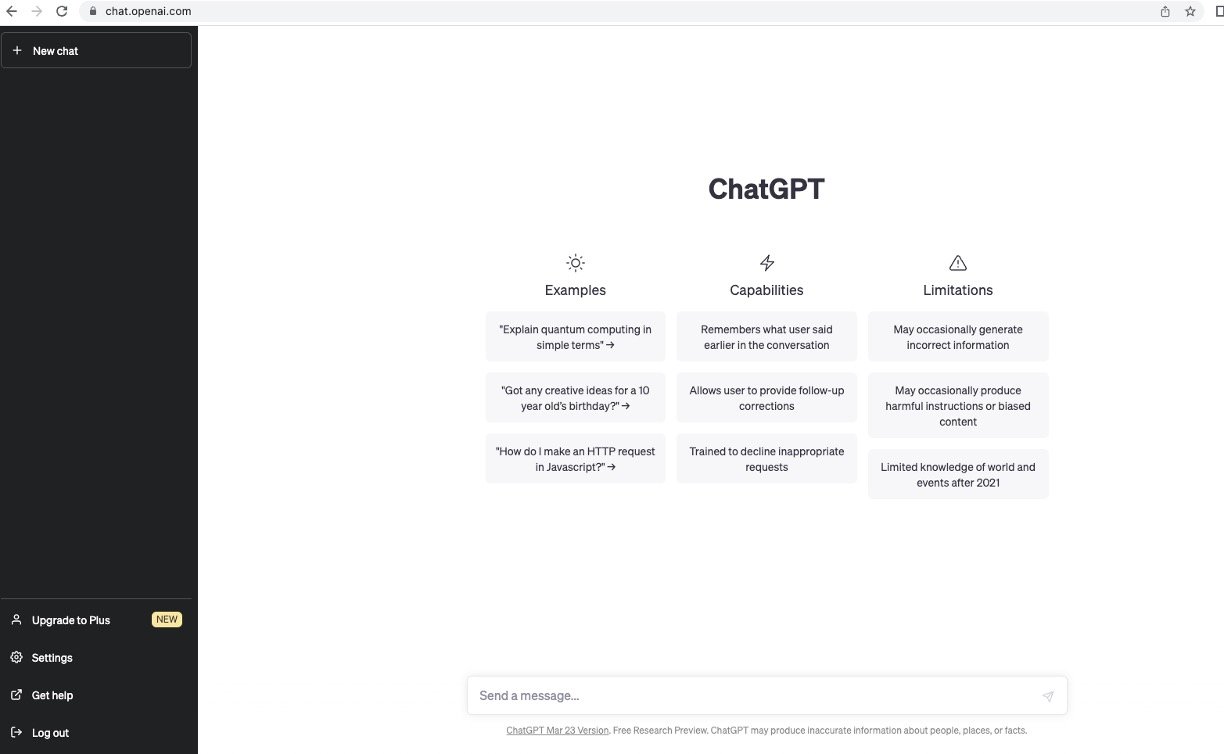What is ChatGPT?
ChatGPT is an OpenAI language model known as the Generative Pre-trained Transformer (GPT). It is a cutting-edge artificial intelligence model that employs deep learning techniques to generate conversational text responses.
ChatGPT is built to communicate with users and respond to their cues or questions, making it excellent for chatbots, virtual assistants, and other conversational applications.
It was trained on a vast corpus of text data and can generate coherent and contextually relevant responses based on user input. Customer service, information retrieval, language translation, and more applications are possible using ChatGPT.
How to Use ChatGPT?
1. Register for an OpenAI account
Go to chat.OpenAi.com and create an account using an email address, a Google or Microsoft account, or both. To log in and utilize ChatGPT, you must first create an account on the OpenAI website.
2. Accept ChatGPT terms
How To Use Chat GPT by Open AI For Beginners
3. Start Asking Questions
FAQ About ChatGPT
What is Chat GPT?
ChatGPT is a language model developed by OpenAI. It is based on the GPT-3.5 architecture, which stands for “Generative Pre-trained Transformer 3.5”.
It is a cutting-edge deep learning model that use artificial intelligence (AI) techniques to generate conversational text responses.
ChatGPT was trained on a massive amount of text data from the internet, including books, papers, webpages, and other sources, giving it a broad variety of knowledge and language capabilities.
It understands and generates text in different languages and can be used for a variety of purposes, including answering queries, providing information, generating content, and engaging in interactive dialogues.
Looking For More Scholarship Programs? Click here
Is Chat GPT Plus Worth It?
People are questioning whether Chat GPT Plus is worth the premium subscription, or if they should stay with the basic free version of Chat GPT, which sometimes requires waiting at peak times.
Chat GPT Plus is a strong tool that has the potential to drastically improve company outcomes. Businesses can get a high return on investment by enhancing customer happiness, increasing efficiency, and planning for the future.
In terms of initial expenditure, Chat GPT Plus is a sensible investment for enterprises of all sizes and industries due to the long-term benefits. Personal use, on the other hand, is dependent on how much of an AI geek you are.
Does Bing Use ChatGPT
Yes! The announcement was made at a Microsoft ChatGPT event in February 2023, when corporate executives stated that OpenAI’s next-generation chatbot technology will be integrated into both Bing and Microsoft’s web browser Edge.
Does ChatGPT Save Data?
Yes, chatGPT saves data. The conversations and user inputs are saved as an ongoing conversation thread each time users speak with the AI. This contributes to the AI’s accuracy over time, allowing it to better understand each inquiry and offer a more personalised response to each particular user.
Is ChatGPT Free?
Yes, the basic ChatGPT version is completely free to use. There is no time limit for using ChatGPT in a day, however there is a word and character limit for responses.
A premium version of its chatbot, ChatGPT Plus, is offered for $20 per month. ChatGPT Plus will offer access even during peak hours, as well as faster responses.
Can ChatGPT Write Essays?
Yes, ChatGPT can help with essay writing by providing text creation skills. ChatGPT, as a language model, can generate text on a variety of themes, such as essay questions, introductions, body paragraphs, conclusions, and more.
Based on the input it gets and the patterns it has learnt from the data it was trained on, it may generate text that is intelligible and grammatically correct.



